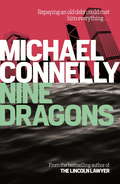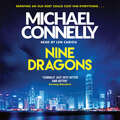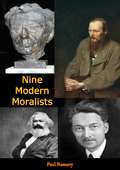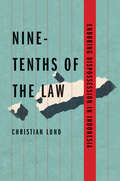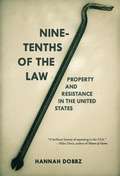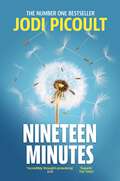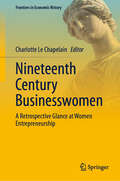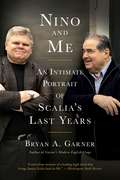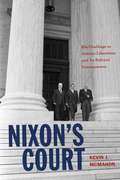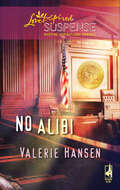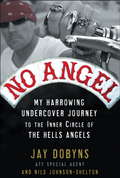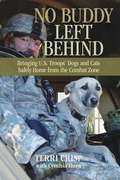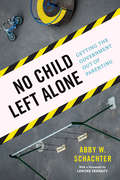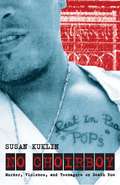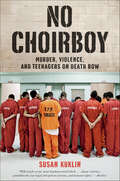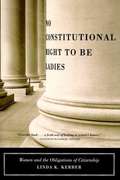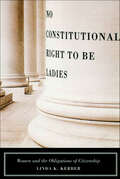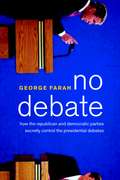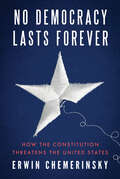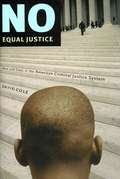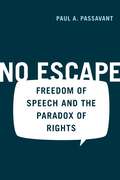- Table View
- List View
Nine Dragons (Harry Bosch Series #14)
by Michael ConnellyHarry Bosch is alone, without backup - and this time the case is personal. From the No. 1 bestselling author of The Lincoln Lawyer. The shooting of a Chinese liquor store owner in LA brings Harry Bosch back to the Rodney King riots and the moment a stranger gave a young cop sanctuary. Now the debt must be repaid, and Harry soon discovers the old man's death was no ordinary hold-up. Homing in on clues disregarded by the cops on the scene, Harry builds a picture of corruption and intimidation, with the local triads at the heart of it. But as he tries to build a case and breach the impenetrable wall of silence in the local community, he finds he is taking a dragon by the tail - a dragon whose talons reach well beyond LA, and even the States. Suddenly the most precious thing in Harry's life is under threat, and he will need to leave the familiarity of his home turf, alone and without backup, if he is going to stop his worst nightmare from happening.
Nine Dragons (Harry Bosch Series #14)
by Michael ConnellyThe shooting of a Chinese liquor store owner in LA brings Harry Bosch back to the Rodney King riots and the moment a stranger gave a young cop sanctuary. Now the debt must be repaid, and Harry soon discovers the old man's death was no ordinary hold-up. Homing in on clues disregarded by the cops on the scene, Harry builds a picture of corruption and intimidation, with the local Triads at the heart of it. But as he tries to build a case and breach the impenetrable wall of silence in the local community, he finds he is taking a dragon by the tail - a dragon whose talons reach well beyond LA, and even the States. Suddenly the most precious thing in Harry's life is under threat, and he will need to leave the familiarity of his home turf, alone and without backup, if he is going to stop his worst nightmare from happening.Read by Michael Brandon(p) 2009 Orion Publishing Group
Nine Modern Moralists: Paul Tillich, Karl Marx, H. Richard Niebuhr, Fyodor Dostoevski, Reinhold Niebuhr, Jacques Maritain, Jean-paul Sartre, Emil Brunner, Edmond Cahn
by Paul RamseyEminent Princeton Philosopher Paul Ramsey looks at the lives and ideas of nine famous Moralists of the modern age.The featured philosophers are — Paul Tillich, Karl Marx, H. Richard Niebuhr, Fyodor Dostoevski, Reinhold Niebuhr, Jacques Maritain, Jean-Paul Sartre, Emil Brunner and Edmond Cahn. “The greatness of the men whose insight and reflections are the subject of the following chapters is obviously a sufficient justification for this volume. The reader who simply wants to learn what was felt and thought and believed by some of the outstanding minds of the immediate past and of the present can, it is hoped, do so by reading the chapters of this book as expository essays. Here he will find their thought anatomized; and, in relatively brief compass, it may be possible for him to become seriously engaged in thinking their thoughts after them. Certainly, no one can come to an understanding of the latest and best of contemporary ideas and ideals by going around these men; only by going through them can one gain a deeper understanding of himself and of our epoch.
Nine to Five
by Joanna L. GrossmanNine to Five provides a lively and accessible introduction to the laws and policies regulating sex, sexuality, and gender identity in the American workplace. Contemporary cases and events reveal the breadth and persistence of sexism and gender stereotyping. Through a series of essays organized around sex discrimination, sexual harassment, pregnancy discrimination, and pay equity, the book highlights legal rules and doctrines that privilege men over women and masculinity over femininity. In understanding the law - what it forbids, what it allows, and to what it turns a blind eye - we see why it is far too soon to declare the triumph of working women's equality. Despite significant gains for women, gender continues to define the work experience in both predictable and surprising ways. A witty and engaging guide to the legal terrain, Nine to Five also proposes solutions to the many obstacles that remain on the path to equality.
Nine-Tenths of the Law: Enduring Dispossession in Indonesia (Yale Agrarian Studies Series)
by Christian LundAn exploration of the relationship between possession and legalization across Indonesia, and how people navigate dispossession The old aphorism &“possession is nine-tenths of the law&” is particularly relevant in Indonesia, which has seen a string of regime changes and a shifting legal landscape for property claims. Ordinary people struggle to legalize their possessions and claim rights in competition with different branches of government, as well as police, army, and private gangs. This book explores the relationship between possession and legalization across Indonesia, examining the imaginative and improvisational interpretations of law by which Indonesians navigate dispossession.
Nine-tenths of the Law
by Hannah Dobbz"Millions of foreclosed homes and abandoned buildings on one hand; millions of Americans desperate for decent shelter on the other. Hannah Dobbz makes the necessary addition of resources and needs in a book that is both a brilliant history of squatting in the USA and a template for the next stage of the Occupy movement.--Mike Davis, author of Planet of Slums and Buda's WagonHow does "property" fit into designs for an equitable society? Nine-tenths of the Law examines the history of squatting and property struggles in the United States, from colonialism to twentieth century urban squatting and the foreclosure crisis of the late 2000s, and how such resistance movements shape the law. Stories from our most hard-hit American cities show that property is truly in crisis:One in five homes in Buffalo, NY, are abandoned.Our national housing vacancy rate is 14 percent. If we gave a house to every homeless person in the United States two-thirds of that stock would remain empty.In May of 2011, one in every 103 homes in Nevada was in foreclosure.Nine-tenths of the Law expands our understanding of property law and highlights recent tactics like creative squatting ventures and the use of adverse possession to claim title to vacant homes. Hannah Dobbz unveils the tangled relationship Americans have always had in creating and sustaining healthy communities.Hannah Dobbz is a writer, editor, filmmaker, and former squatter. In 2007 she produced a film about squatters in the Bay Area called Shelter. The film has screened widely at universities, bookstores, and community spaces, including the 2009 Three Rivers Film Festival in Pittsburgh, Pennsylvania.
Nineteen Minutes
by Jodi PicoultTHE INTERNATIONAL BESTSELLER'Incredibly thought-provoking SunAfter years of cruel bullying from his classmates, Peter Houghton snaps one morning, and in nineteen minutes, ten residents of the town of Sterling are dead. When the case goes to trial, the reeling town is determined to seek justice for the innocents Peter killed. But as the trial unfolds, Peter's testimony casts light on the terrible role the residents of Sterling have played in turning a sweet, loving boy into a killer, and it isn't long before Sterling's illusions of innocence find themselves shattered forever. . .THE BOOK OF TWO WAYS, Jodi's stunning new novel about life, death and missed opportunities is available to pre-order now.
Nineteenth Century Businesswomen: A Retrospective Glance at Women Entrepreneurship (Frontiers in Economic History)
by Charlotte Le ChapelainThe book examines female entrepreneurship in the nineteenth century. Economic history has long accorded women entrepreneurs a very minor place, relegating them to the status of historical anecdotes. The hypothesis of women’s withdrawal from the business sphere after the eighteenth century has long dominated. However, this view has recently been subject to a fundamental questioning. Women did in fact actively contribute to economic development by occupying key positions in the business sphere as independent workers, investors and entrepreneurs. Businesswomen were no exception in the nineteenth century. They ran businesses of all sizes and in a wide range of industrial sectors. This book helps to bring nineteenth-century women entrepreneurs out of invisibility, by examining their entrepreneurial practices and shedding light on the role of the legal framework in which they operated. This interdisciplinary book will appeal to students, scholars, and researchers of economic history, business history, history of law, and economics and management sciences in general, interested in a better understanding of female entrepreneurship in the nineteenth century.
Nineteenth Century Popular Fiction, Medicine and Anatomy: The Victorian Penny Blood and the 1832 Anatomy Act (Palgrave Studies in Literature, Science and Medicine)
by Anna GasperiniThis book investigates the relationship between the fascinating and misunderstood penny blood, early Victorian popular fiction for the working class, and Victorian anatomy. In 1832, the controversial Anatomy Act sanctioned the use of the body of the pauper for teaching dissection to medical students, deeply affecting the Victorian poor. The ensuing decade, such famous penny bloods as Manuscripts from the Diary of a Physician, Varney the Vampyre, Sweeney Todd, and The Mysteries of London addressed issues of medical ethics, social power, and bodily agency. Challenging traditional views of penny bloods as a lowlier, un-readable genre, this book rereads these four narratives in the light of the 1832 Anatomy Act, putting them in dialogue with different popular artistic forms and literary genres, as well as with the spaces of death and dissection in Victorian London, exploring their role as channels for circulating discourses about anatomy and ethics among the Victorian poor.
Nino and Me: My Unusual Friendship with Justice Antonin Scalia
by Bryan A. GarnerFrom legal expert and veteran author Bryan Garner comes a unique, intimate, and compelling memoir of his friendship with the late Supreme Court Justice Antonin Scalia.For almost thirty years, Antonin Scalia was arguably the most influential and controversial Justice on the United States Supreme Court. His dynamic and witty writing devoted to the Constitution has influenced an entire generation of judges. Based on his reputation for using scathing language to criticize liberal court decisions, many people presumed Scalia to be gruff and irascible. But to those who knew him as “Nino,” he was characterized by his warmth, charm, devotion, fierce intelligence, and loyalty. Bryan Garner’s friendship with Justice Scalia was instigated by celebrated writer David Foster Wallace and strengthened over their shared love of language. Despite their differing viewpoints on everything from gun control to the use of contractions, their literary and personal relationship flourished. Justice Scalia even officiated at Garner’s wedding. In this humorous, touching, and surprisingly action-packed memoir, Garner gives a firsthand insight into the mind, habits, and faith of one of the most famous and misunderstood judges in the world.
Nixon's Court: His Challenge to Judicial Liberalism and Its Political Consequences
by Mcmahon Kevin J.Most analysts have deemed Richard Nixon’s challenge to the judicial liberalism of the Warren Supreme Court a failure—“a counterrevolution that wasn’t. ” Nixon’s Court offers an alternative assessment. Kevin J. McMahon reveals a Nixon whose public rhetoric was more conservative than his administration’s actions and whose policy towards the Court was more subtle than previously recognized. Viewing Nixon’s judicial strategy as part political and part legal, McMahon argues that Nixon succeeded substantially on both counts. Many of the issues dear to social conservatives, such as abortion and school prayer, were not nearly as important to Nixon. Consequently, his nominations for the Supreme Court were chosen primarily to advance his “law and order” and school desegregation agendas—agendas the Court eventually endorsed. But there were also political motivations to Nixon’s approach: he wanted his judicial policy to be conservative enough to attract white southerners and northern white ethnics disgruntled with the Democratic party but not so conservative as to drive away moderates in his own party. In essence, then, he used his criticisms of the Court to speak to members of his “Silent Majority” in hopes of disrupting the long-dominant New Deal Democratic coalition. For McMahon, Nixon’s judicial strategy succeeded not only in shaping the course of constitutional law in the areas he most desired but also in laying the foundation of an electoral alliance that would dominate presidential politics for a generation.
Nixon's Court: His Challenge to Judicial Liberalism and Its Political Consequences
by Kevin J. McmahonMost analysts have deemed Richard Nixon's challenge to the judicial liberalism of the Warren Supreme Court a failure--"a counterrevolution that wasn't. "Nixon's Court offers an alternative assessment. Kevin J. McMahon reveals a Nixon whose public rhetoric was more conservative than his administration's actions and whose policy towards the Court was more subtle than previously recognized. Viewing Nixon's judicial strategy as part political and part legal, McMahon argues that Nixon succeeded substantially on both counts. Many of the issues dear to social conservatives, such as abortion and school prayer, were not nearly as important to Nixon. Consequently, his nominations for the Supreme Court were chosen primarily to advance his "law and order" and school desegregation agendas--agendas the Court eventually endorsed. But there were also political motivations to Nixon's approach: he wanted his judicial policy to be conservative enough to attract white southerners and northern white ethnics disgruntled with the Democratic party but not so conservative as to drive away moderates in his own party. In essence, then, he used his criticisms of the Court to speak to members of his "Silent Majority" in hopes of disrupting the long-dominant New Deal Democratic coalition. For McMahon, Nixon's judicial strategy succeeded not only in shaping the course of constitutional law in the areas he most desired but also in laying the foundation of an electoral alliance that would dominate presidential politics for a generation.
No Alibi
by Valerie HansenIntimidation takes a dangerous toll on a woman and the man who vows to protect her in a riveting courtroom thriller from the USA Today–bestselling author.A finalist for the New England “Reader’s Choice Bean Pot Award” from New England RWAJuror Julie Ann Jones simply didn’t expect the life on the line to be her own. Courtroom tension is running high during a scandal-packed murder case. As the trial heats up, a series of “accidents” begins targeting the jurors—especially Julie Ann. There are gunshots at her beauty salon. A prowler is spotted at her home. Through it all, fellow juror Smith Burnett gives her the courage to continue. But will she find the courage to give Smith her heart?
No Angel: My Harrowing Undercover Journey to the Inner Circle of the Hells Angels
by Jay Dobyns Nils Johnson-SheltonHere, from Jay Dobyns, the first federal agent to infiltrate the inner circle of the outlaw Hells Angels Motorcycle Club, is the inside story of the twenty-one-month operation that almost cost him his family, his sanity, and his life.Getting shot in the chest as a rookie agent, bartering for machine guns, throttling down the highway at 100 mph, and responding to a full-scale, bloody riot between the Hells Angels and their rivals, the Mongols–these are just a few of the high-adrenaline experiences Dobyns recounts in this action-packed, hard-to-imagine-but-true story.Dobyns leaves no stone of his harrowing journey unturned. At runs and clubhouses, between rides and riots, Dobyns befriends bad-ass bikers, meth-fueled “old ladies,” gun fetishists, psycho-killer ex-cons, and even some of the “Filthy Few”–the elite of the Hells Angels who’ve committed extreme violence on behalf of their club. Eventually, at parties staged behind heavily armed security, he meets legendary club members such as Chuck Zito, Johnny Angel, and the godfather of all bikers, Ralph “Sonny” Barger. To blend in with them, he gets full-arm ink; to win their respect, he vows to prove himself a stone-cold killer.Hardest of all is leading a double life, which has him torn between his devotion to his wife and children, and his pledge to become the first federal agent ever to be “fully patched” into the Angels’ near-impregnable ranks. His act is so convincing that he comes within a hairsbreadth of losing himself. Eventually, he realizes that just as he’s been infiltrating the Hells Angels, they’ve been infiltrating him. And just as they’re not all bad, he’s not all good.Reminiscent of Donnie Brasco’s uncovering of the true Mafia, this is an eye-opening portrait of the world of bikers–the most in-depth since Hunter Thompson’s seminal work–one that fully describes the seductive lure criminal camaraderie has for men who would otherwise be powerless outsiders. Here is all the nihilism, hate, and intimidation, but also the freedom–and, yes, brotherhood–of the only truly American form of organized crime.From the Hardcover edition.
No Buddy Left Behind: Bringing U. S. Troop's Dogs and Cats Safely Home from the Combat Zone
by Terri Crisp C. J. HurnThe love of a dog or cat helps heal soldiers' emotional trauma. One very special woman and program brings them back together after the war. No Buddy Left Behind is an animal book with a difference. It is not only about rescued dogs and cats, but also about U. S. soldiers trying to survive the horrors of war and readjust to life back home. It unveils the life-altering relationships American troops serving in the Middle East share with the stray dogs and cats they rescue from the brutalities of war. Overcoming monumental obstacles, Terri Crisp makes it her mission to save these wartime "buddies," get them out of danger, and bring them home to the soldiers who love them. So, how does someone get animals out of a country at war when normal resources are lacking and every step of a plan to transport animals could get you arrested, kidnapped, or blown apart? As Crisp soon learns, each rescue mission from first to last is a fly-by-the-seat-of-your-pants experience, and no animal is truly safe until its paws touch American soil. Terri and her team have saved the lives of 223 dogs and forty-two cats befriended by military personnel since February 2008-and No Buddy Left Behind finally tells this story.
No Child Left Alone: Getting the Government Out of Parenting
by Abby W. SchachterUncle Sam is the worst helicopter parent in America.Children are taken from their parents because they are obese. Parents are arrested for letting their children play outside alone. Sledding and swaddling are banned. From games to school to breast-feeding to daycare, the overbearing bureaucratic state keeps getting between kids and their parents.The state's safety, hygiene, and health regulations rule, and the government's judgment may not coincide with yours. Which foods and drinks to send to school, what toys to buy, whether to breast- or bottle-feed babies are all choices that used to be left to you and me. Not anymore.As a mom to four kids, I should be used to it, but I'm not. All the government-mandated parenting gets under my skin. And I'm not alone.No Child Left Alone explores the growing problem of an intrusive, interfering government and highlights those parents-all the Captain Mommies and Captain Daddies across America-fighting to take back control over their families.
No Choirboy: Murder, Violence, and Teenagers on Death Row
by Susan KuklinNo Choirboy takes readers inside America's prisons, and allows inmates sentenced to death as teenagers to speak for themselves. In their own voices--raw and uncensored--they talk about their lives in prison, and share their thoughts and feelings about how they ended up there. Susan Kuklin also gets inside the system, exploring capital punishment itself and the intricacies and inequities of criminal justice in the United States. This is a searing, unforgettable read, and one that could change the way we think about crime and punishment. End items include an excellent glossary, author's notes, further reading list, and organizations with their websites.
No Choirboy: Murder, Violence, and Teenagers on Death Row
by Susan KuklinNo Choirboy takes readers inside America's prisons, and allows inmates sentenced to death as teenagers to speak for themselves. In their own voices—raw and uncensored—they talk about their lives in prison, and share their thoughts and feelings about how they ended up there. Susan Kuklin also gets inside the system, exploring capital punishment itself and the intricacies and inequities of criminal justice in the United States. This is a searing, unforgettable read, and one that could change the way we think about crime and punishment.No Choirboy: Murder, Violence, and Teenagers on Death Row is a 2009 Bank Street - Best Children's Book of the Year.
No Constitutional Right to Be Ladies: Women and the Obligations of Citizenship
by Linda K. KerberThis pioneering study redefines women's history in the United States by focusing on civic obligations rather than rights. Looking closely at thirty telling cases from the pages of American legal history, Kerber's analysis reaches from the Revolution, when married women did not have the same obligation as their husbands to be "patriots," up to the present, when men and women, regardless of their marital status, still have different obligations to serve in the Armed Forces. An original and compelling consideration of American law and culture,No Constitutional Right to Be Ladies emphasizes the dangers of excluding women from other civic responsibilities as well, such as loyalty oaths and jury duty. Exploring the lives of the plaintiffs, the strategies of the lawyers, and the decisions of the courts, Kerber offers readers a convincing argument for equal treatment under the law.
No Constitutional Right to Be Ladies: Women and the Obligations of Citizenship
by Linda K. KerberThis pioneering study redefines women's history in the United States by focusing on civic obligations rather than rights. Looking closely at thirty telling cases from the pages of American legal history, Kerber's analysis reaches from the Revolution, when married women did not have the same obligation as their husbands to be "patriots," up to the present, when men and women, regardless of their marital status, still have different obligations to serve in the Armed Forces. An original and compelling consideration of American law and culture, No Constitutional Right to Be Ladies emphasizes the dangers of excluding women from other civic responsibilities as well, such as loyalty oaths and jury duty. Exploring the lives of the plaintiffs, the strategies of the lawyers, and the decisions of the courts, Kerber offers readers a convincing argument for equal treatment under the law.
No Contest
by Alfie KohnNo Contest stands as the definitive critique of competition. Contrary to accepted wisdom, competition is not basic to human nature; it poisons our relationships and holds us back from doing our best. In this new edition, Alfie Kohn argues that the race to win turns all of us into losers.
No Debate: How the Republican and Democratic Parties Secretly Control the Presidential Debates
by George FarahBroadcast to tens of millions of Americans, the presidential debates are the Super Bowl of politics. A good performance before the cameras can vault a contender to the front of the pack, while a gaffe spells national embarrassment and can savage a candidacy. The slim margin for error has led the two major parties to seek--and achieve, under the aegis of the bipartisan Commission on Presidential Debates--tight control through scripting, severe time limits, and the exclusion of third-party candidates. In No Debate, author and lobbyist George Farah argues that these staged recitations make a mockery of free and fair presidential elections. With urgency and clarity, this book reviews the history of presidential debates, the impact of the debates since the advent of television, the role of the League of Women Voters, the antidemocratic activity of the CPD, and the specific ways that the Republicans and Democrats collude to remove all spontaneity from the debates themselves. The author presents the complete text of a previously unreleased secret document between the Republicans and Democrats that reveals the degree to which the two parties--not the CPD--dictate the terms of the debates. In the final chapter, Farah lays out a compelling strategy for restoring the presidential debates as a nonpartisan, unscripted, public events that help citizens--not corporations or campaign managers--decide who is going to run the White House.
No Democracy Lasts Forever: How the Constitution Threatens the United States
by Erwin ChemerinskyA groundbreaking work from one of America’s leading legal scholars, No Democracy Lasts Forever audaciously asserts that the only way a polarized America can avoid secession is to draft a new Constitution. The Constitution has become a threat to American democracy. Due to its inherent flaws—its treatment of race, dependence on a tainted Electoral College, a glaringly unrepresentative Senate, and the outsized influence of the Supreme Court—Erwin Chemerinsky, the dean of Berkeley Law School and one of our foremost legal scholars, has come to the sobering conclusion that our nearly 250-year-old founding document can no longer hold. Much might be fixed by Congress or the Supreme Court, but they seem unlikely to do so. One might logically conclude that amending the Constitution would solve the problem, yet logic seldom takes precedent, given that only fifteen of the 11,848 amendments proposed since 1789 have passed. Chemerinsky contends that without major changes, the Constitution is beyond redemption in that it has created a government that can no longer deal with the urgent issues, such as climate change and wealth inequalities, that threaten our nation and the world. Yet political Armageddon can still be avoided, Chemerinsky writes, if a new constitutional convention is empowered to replace the Constitution of 1787. Just as the Founding Fathers replaced the faulty Articles of Confederation that same year, we must, No Democracy Lasts Forever argues, rewrite the entire Constitution from start to finish. Still, Chemerinsky goes further than that, suggesting that without serious changes Americans may be on the path to various forms of secession based on a recognition that what divides us as a country is, in fact, greater than what unites us. No Democracy Lasts Forever asserts with exceptional clarity that if the problems with the Constitution are not fixed, we are ineluctably heading toward a crisis where secession is, indeed, possible and where it will be necessary to think carefully about how to preserve the United States as a world power in a very different form of government. Despite these troubles, Chemerinsky remains hopeful, revealing how the past offers hope that change can happen. The United States has been through enormously challenging and divisive times before, with a civil war and the Great Depression, and Chemerinsky ultimately shows that it may still be possible to cure the defects and save American democracy at the same time.
No Equal Justice: Race and Class in the American Criminal Justice System
by David ColeIn a hard-hitting study hailed by "Publishers Weekly" as "well-argued" and "passionate," a leading constitutional scholar reveals that, despite a veneer of neutrality, race- and class-based double standards operate in virtually every criminal justice setting, from police behavior to jury selection to sentencing.
No Escape: Freedom of Speech and the Paradox of Rights
by Paul PassavantConventional legal and political scholarship places liberalism, which promotes and defends individual legal rights, in direct opposition to communitarianism, which focuses on the greater good of the social group. According to this mode of thought, liberals value legal rights for precisely the same reason that communitarians seek to limit their scope: they privilege the individual over the community. However, could it be that liberalism is not antithetical to social group identities like nationalism as is traditionally understood? Is it possible that those who assert liberal rights might even strengthen aspects of nationalism? No Escape argues that this is exactly the case, beginning with the observation that, paradoxical as it might seem, liberalism and nationalism have historically coincided in the United States. No Escape proves that liberal government and nationalism can mutually reinforce each other, taking as its example a preeminent and seemingly universal liberal legal right, freedom of speech, and illustrating how it can function in a way that actually reproduces nationally exclusive conditions of power. No Escape boldly re-evaluates the relationship between liberal rights and the community at a time when the call has gone out for the nation to defend the freedom to live our way of life. Passavant challenges us to reconsider traditional modes of thought, providing a fresh perspective on seemingly intransigent political and legal debates.
